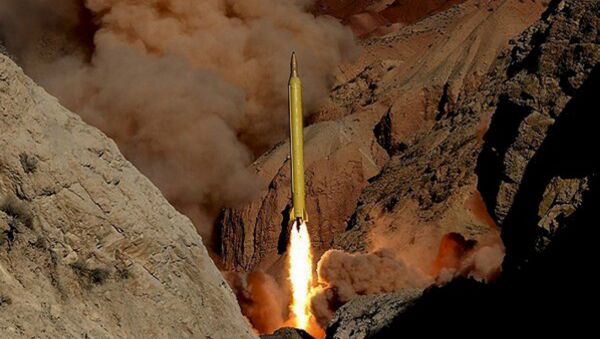The missile had a range of 2,000 kilometers (1,242 miles), with an accuracy of about eight meters, deputy chief of the Iranian General Staff, Brig. Gen. Ali Abdullahi was cited by the ISNA news agency.
He emphasized that "the great revolution" has occurred in the country's defense, and the enemies should not dare to threaten Iran.
According to other media reports, the test was conducted two weeks ago.
In March, Iran held nationwide missile exercises, when, in particular, the Islamic Revolution Guards Corps (IRGC) Aerospace Forces test-fired two types of ballistic missiles, both of which successfully hit the targets.
According to the IRGC Aerospace Forces command, the drills were aimed at demonstrating Iran's might and at verifying Iran's ballistic missile readiness to counter Iran's "enemies."
On July 14, Iran and the P5+1 group of countries comprising Russia, the United States, China, France and the United Kingdom plus Germany, signed the Joint Comprehensive Plan of Action (JCPOA). The agreement guarantees the peaceful nature of Iran's nuclear program in exchange for sanctions relief.
Following the adoption of the JCPOA, the UN Security Council passed Resolution 2231, which prohibits Iran from engaging in activities related to ballistic missiles capable of delivering nuclear weapons.




